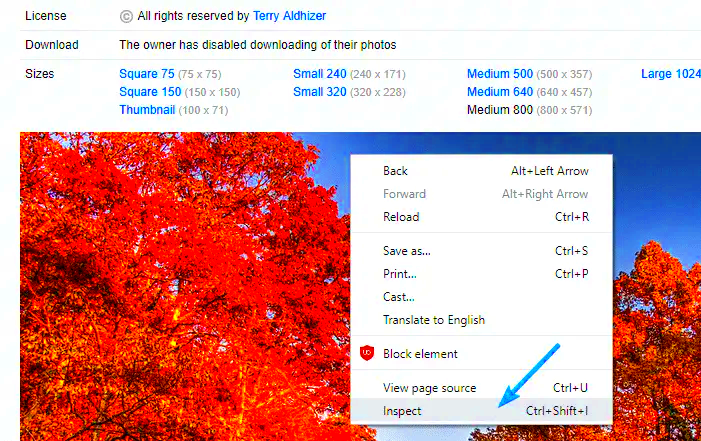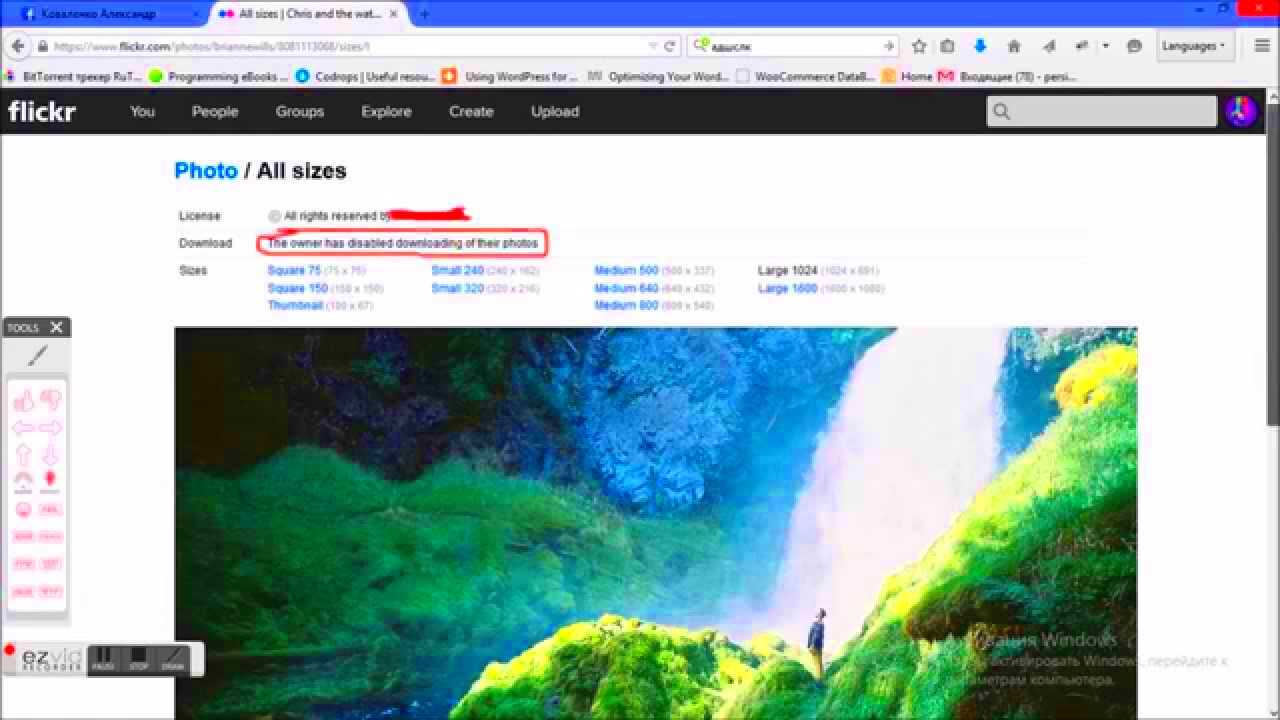If you're anything like me you've probably used
Flickr to explore its extensive photo library, whether it's for your own projects or simply to appreciate the talent of photographers.
Flickr has long been a go to platform for accessing images. However it's important to note that not all photos can be downloaded especially if the owner has opted to restrict this option. In this article I'll guide you through the essentials of downloading
Understanding Flickr’s Photo Privacy Settings
 Flickr
Flickr provides various privacy options for users to manage the visibility and download permissions of their photos. These options consist of:
- Public: Anyone can view and download these photos.
- Friends and Family: Only selected people can view or download these photos.
- Private: Only the uploader can view these photos, and download options are disabled for everyone else.
Based on my experience I think
Flickr's privacy features do a job of safeguarding your pictures. When you upload a picture and mark it as private it's like locking it away in a safe. There was a time when I wanted to share a photo exclusively with a circle of friends and choosing the 'Friends and Family' option did the trick. However it can be tricky if you're trying to view a photo that's been marked as private or if the download feature has been turned off.
Challenges with Downloading Disabled Flickr Photos
It can be quite frustrating when the download option for a
Flickr photo is turned off. Here are a few obstacles you may encounter:
- Access Restrictions: Disabled photos cannot be downloaded directly, even if you find them intriguing.
- Privacy and Permissions: Attempting to bypass these restrictions can lead to legal and ethical issues. I once tried to work around such restrictions for a project, only to realize that respecting privacy settings is crucial.
- Technical Limitations: There are various tools and methods that claim to bypass restrictions, but they often come with risks, such as malware or violating Flickr’s terms of service.
Throughout my experience with
Flickr I've come to realize that although it may be appealing to seek alternatives to these limitations it's usually more effective to contact the owner of the photo directly. A lot of photographers are open to sharing their work if you kindly request it and provide an explanation for your requirement. Honoring privacy and obtaining consent is not, a legal duty but also a question of upholding ones integrity.
Possible Methods for Accessing Disabled Photos
Discovering how to view Flickr photos that have the download feature turned off can be a bit of a challenge. I recall an instance when I was creating a collage and came across a beautiful picture that was unfortunately restricted. It felt like a major disappointment at the time but I've since picked up some techniques that could be useful in situations.
Here are some approaches you could consider:
- Contact the Photographer: The most straightforward way is to reach out to the photo owner. Many photographers are open to sharing their work if you explain your purpose. I once contacted a photographer whose work I admired, and they were more than happy to provide a higher-resolution version.
- Check for Alternate Versions: Sometimes, the photographer might have shared similar images with download options enabled. Browsing their other albums or collections might yield usable alternatives.
- Use Screenshots: While not the ideal method for high-quality needs, taking a screenshot of the photo might work if you only need a small, lower-resolution version. Just ensure you do this ethically and with respect for the creator’s rights.
Keep in mind that although these techniques can be useful it is important to respect copyright and the preferences of the photographer. Seeking legitimate means to obtain content is always preferable to avoid potential ethical or legal problems.
Using Flickr Downloader Tools for Access
Flickr downloading tools are frequently promoted as ways to retrieve photos that are otherwise restricted. In my view while some of these tools can be quite successful they also present their own obstacles.
Here’s what you need to know:
- Tool Selection: There are various downloader tools available online. Some are free, while others require payment. Be cautious when choosing a tool; ensure it's reputable and has good reviews to avoid security risks. I’ve tried a few myself and found that paid tools often offer better reliability and support.
- Functionality: Most tools work by scraping the web pages for downloadable content. However, if a photo’s download option is disabled through Flickr’s settings, these tools might not always be able to bypass such restrictions.
- Risks: Using these tools can pose risks, including malware or violating Flickr’s terms of service. Always use caution and understand that bypassing restrictions can have legal ramifications.
Although these tools may seem appealing I have come to realize that they are not infallible. It’s important to use them wisely and be mindful of copyright infringement.
Legal and Ethical Considerations
When it comes to handling disabled photos on Flickr, the focus is on the legal and ethical considerations. I encountered a situation where I had to decide whether to find a way to access a picture or uphold the photographers rights. This situation highlighted how crucial it is to stick to principles.
Here are some key considerations:
- Respect Copyright: Photographers own the rights to their images, and disabling download options is their way of controlling how their work is used. Always respect their decisions. I remember how a simple request for permission led to a positive outcome where the photographer agreed to share their work.
- Avoid Unauthorized Tools: Tools that attempt to bypass restrictions might infringe on terms of service or copyright laws. It's better to avoid these tools and stick to legitimate methods of obtaining content.
- Seek Permission: If you need a photo for a project, asking the photographer directly is often the best approach. They might be willing to provide access if you explain how you intend to use their work.
In the end staying within legal and ethical limits not only safeguards you but also upholds the integrity of the creative industry. It’s wise to handle these circumstances with transparency and principles.
 Flickr provides various privacy options for users to manage the visibility and download permissions of their photos. These options consist of:
Flickr provides various privacy options for users to manage the visibility and download permissions of their photos. These options consist of:
 admin
admin








